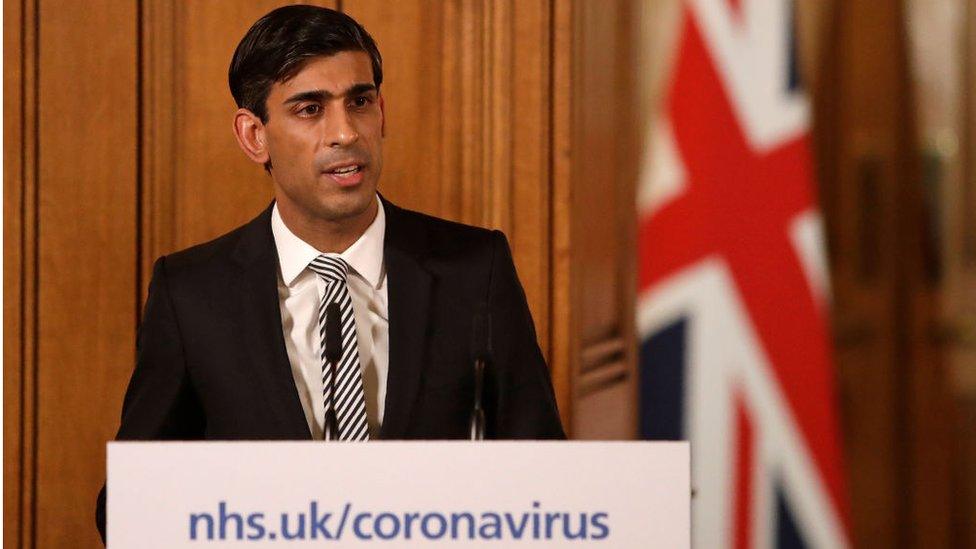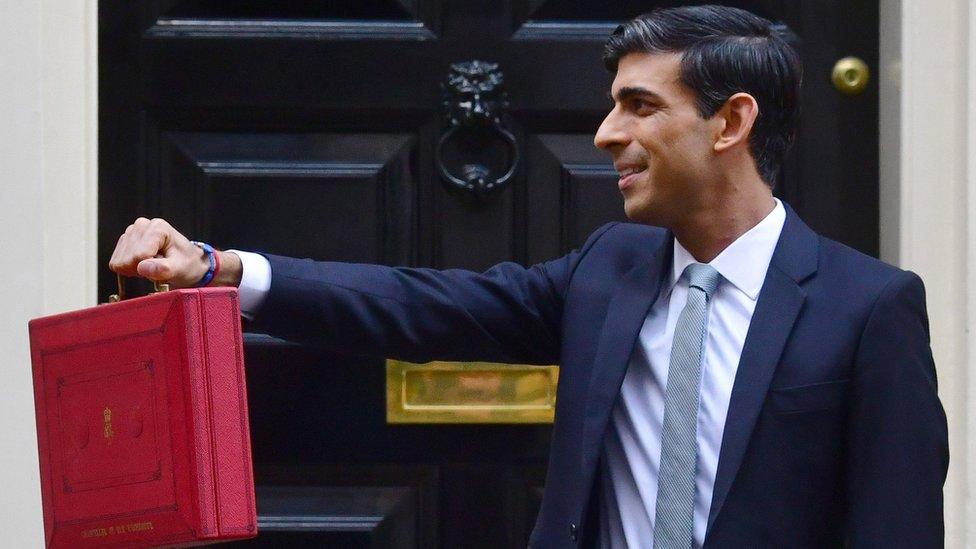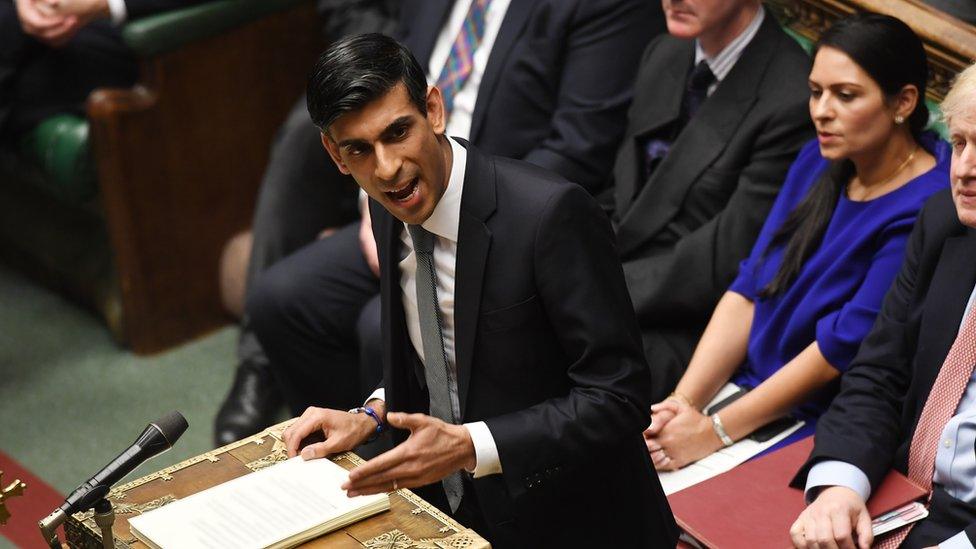Virus: Will government rescue package be enough for firms?
- Published
- comments

The government has announced the biggest intervention in private sector business since the Second World War to help fight the economic impact of coronavirus.
The questions it will try to answer later on Monday are: "How will it work? How do I get the money? What will it mean for my business and my staff?"
The British Business Bank will act as intermediary between the Treasury and the High Street banks who will be at the front line of getting it to customers.
At £350bn, the promised supply of financial support is enormous. But details on how the loan guarantees and grants announced in the Budget will be distributed in practice need to be clarified urgently.
Some of this is not straightforward so please bear with me.
Here's what we know
Firms with a turnover of up to £45m a year will theoretically be able to get a loan - interest free for 12 months of up to £5m with the government guaranteeing 80% of that loan. An enormous intervention welcomed by business.
However, I say theoretically because the government will only offer this guarantee if it thinks it is a loan that the business would be unable to get without state help. Erm, how do we police that?
Question: How do we know that the banks wouldn't have lent the money anyway - and are thus getting an 80% guarantee from taxpayers?
Answer: No-one cares right now. Lending industry bosses admit this is a potential problem but the urgency of the situation means we can't be too squeamish about potential abuses of the system. We can retrospectively punish bad behaviour where necessary.
Remember, the government guarantee is to the bank for taking the risk. The borrower will still be 100% liable for the debt.
Any loan of over £250k will need to be secured by company assets. If you don't pay it back, the bank gets to keep your company car, your factory, your equipment, your tools, but importantly NOT your principal primary residence.
Question: How many businesses will feel like taking on more secured debt at a time when no one can predict and few expect a return to business as normal anytime soon?
Answer - anecdotally - not many. £330bn of loan guarantees is a lot of supply but there may not be much demand.

Companies falling between the cracks
In terms of sheer size, this support package is a howitzer, but if it doesn't hit the target it's of limited use. There are two programmes on offer.
The loan guarantee scheme for companies with turnover up to £45m and a government promise to buy unlimited amounts of short-term IOUs from companies that are investment grade. That is a technical term that applies to firms with a high credit rating.
There are thousands of businesses that fall between the two stools. Just about every High Street chain wouldn't qualify for either. Next, generally considered the best-run retail business in the UK, scrapes over the hurdle. M&S, Boots, WH Smith, Pret a Manger and countless others would not.
The UK hospitality and retail sector employs 3.2 million people, more than any other sector in the economy. Most of the industry won't be eligible. While firms in this space will get 80% of their staff wages reimbursed (backdated to 1 March so staff laid off days before that announcement can be taken back onto payroll and still qualify), that still means cost going out, with little income coming in and no access to the big government pots.
The BBC also understands that while the loan guarantee scheme will cover 80% of any bank's losses on any individual loan - it will only guarantee a maximum of 60% of a bank's total loans under the scheme. So in fact the government is offering to share 60% of a bank's total losses rather than 80%. A materially different calculation.
Rent woes
Here is the final question for lenders. At what point does a health emergency and its pursuant severe economic downturn turn into another full-blown financial crisis?
Most commercial businesses I speak to have little intention or ability to pay a quarterly rent bill due next week. If they don't pay, those losses land on the landlords who have already seen huge reductions in rents, with many having massive debts of their own. Those debts then become bad loans to the banking system.
New international accounting rules (called IFRS 9 if you are interested) require firms to record their best guess of future total losses on bad loans upfront and account for it immediately, rather than drip feed them over years through their accounts. Given the gravity of the situation, that could mean a massive hole being ripped in company finances rendering some firms technically insolvent.
The international banking and accounting firms are aware of this - as are the regulators and there is huge pressure for the rules to be relaxed.
There are so many other questions. How do you get assistance to the self-employed - government-backed loans or grants based on recent trading history? Is there any assistance available to gig economy/zero hours workers above and beyond a benefits system that is far less generous than in other European countries?
To be fair to government and the civil servants who, like NHS staff, supermarket workers, taxi and delivery drivers and others, are working round the clock under incredibly demanding circumstances - this is an impossible situation to "get ahead of". Policies made on the hoof at such pace are bound to have holes in them.
The challenge will be to fill them nearly as quickly as they become apparent. It is a grim, grave and gruelling task.
- Published17 March 2020

- Published12 March 2020

- Published11 March 2020

